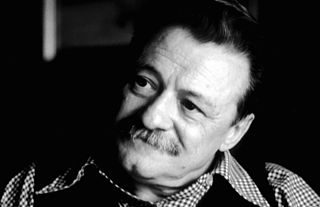A Quote by Don Paterson
So we start with an oversignifying reader. Those texts that appear to reward this reader for this additional investment - text that we find exceptionally suggestive, apposite, or musical - are usually adjudged to be 'poetic'. ... The work of the poet is to contribute a text that will firstly invite such a reading; and secondly reward such a reading.
Quote Topics
Related Quotes
We must be forewarned that only rarely does a text easily lend itself to the reader's curiosity... the reading of a text is a transaction between the reader and the text, which mediates the encounter between the reader and writer. It is a composition between the reader and the writer in which the reader "rewrites" the text making a determined effort not to betray the author's spirit.
Our amended Constitution is the lodestar for our aspirations. Like every text worth reading, it is not crystalline. The phrasing is broad and the limitations of its provisions are not clearly marked. Its majestic generalities and ennobling pronouncements are both luminous and obscure. This ambiguity of course calls forth interpretation, the interaction of reader and text. The encounter with the Constitutional text has been, in many senses, my life's work.
Like when you pick up a book and you don't realize what type of text it is - it could be an essay, a novel, a biography - and at one point you realize you don't know where, as a reader, you want to be. Where are you going with this text? What is the goal? How are you supposed to interpret what you're reading? And people's responses vary - some dislike it, and are put off by the confusion, the lack of comprehension.
The process of reading is not a half sleep, but in the highest sense, an exercise, a gymnast's struggle: that the reader is to do something for him or herself, must be on the alert, just construct indeed the poem, argument, history, metaphysical essay--the text furnishing the hints, the clue, the start, the framework.
The power of a text when it is read is different from the power it has when it is copied out. Only the copied text thus commands the soul of him who is occupied with it, whereas the mere reader never discovers the new aspects of his inner self that are opened by the text, that road cut through the interior jungle forever closing behind it: because the reader follows the movement of his mind in the free flight of day-dreaming, whereas the copier submits it to command.





































